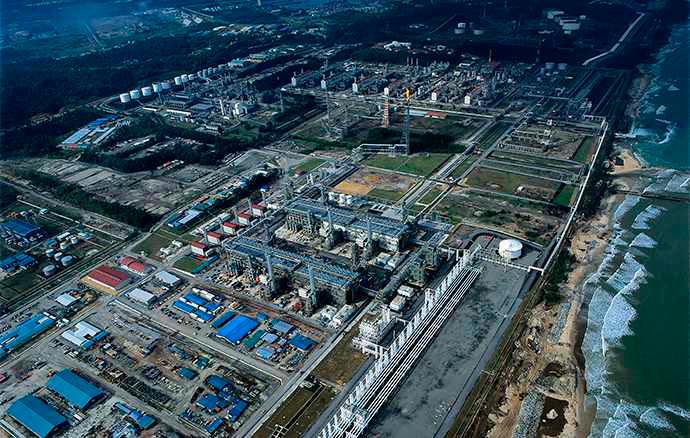KUALA LUMPUR: Malaysia’s role in global liquefied natural gas (LNG) trading is expected to grow as the national oil company Petroliam Nasional Bhd (Petronas) expands investments in overseas LNG projects.
BMI Country Risk & Industry Research, in a report, noted that Malaysia is aiming to broaden its presence in the global LNG market, propelled by a positive long-term demand outlook.
“We anticipate further growth in Malaysia’s LNG trading sector as the state-owned Petronas continues to enhance its global LNG portfolio through strategic overseas investments,“ BMI said.
BMI noted that Telekom Malaysia Bhd (TM) and Petronas have recently launched a private 5G network at Petronas’ LNG Complex in Bintulu, Sarawak.
The complex, one of the world’s largest single-location LNG plants, boasts an annual production capacity of 29.8 million tonnes.
The partnership underscores how telcos are looking to maximise revenue opportunities from 5G through private networks.
“Internet of Things (IoT) adoption within the oil and gas sector in Malaysia is likely to account for a marginal yet more important share of our machine-to-machine (M2M) forecasts.
“Per our estimates, machine-to-machine (M2M) cellular connections in the country will grow from an estimated 1.62mn in 2024 to 3.00mn in 2033,“ BMI report said.
“We previously discussed how CelcomDigi and Petronas are collaborating to develop private 5G solutions for the oil and gas sector in order to improve operations through IoT-enabled solutions,“ it said.
BMI said the construction of these bespoke networks is part of a series of initiatives to leverage advanced technology to create value and work towards the market’s digital transformation agenda, Jendela.
Relatively, the BMI report also noted that integrating (IoT) technologies, including sensors, self-driving short-distance vehicles, and wireless communication devices, will significantly benefit the industry.
Traditionally mechanical infrastructures can be transformed by these monitoring technologies, enabling data collection to optimise production, enhance automation, and minimise downtime.
In reservoir management, downhole sensors monitor conditions like pressure and temperature to optimise production and capital allocation.
Equipment monitoring benefits from real-time feedback and predictive analysis, reducing downtime and detecting pipeline issues.
Refining operations can use sensors to detect abnormalities and improve maintenance, while LNG plants can optimise performance and control emissions through pressure-tracking and optical sensors.
BMI report further said as assets deliver real-time data, processing and control systems will automate operations, monitor performance, allow remote operation, and enhance safety.
Automation and AI further improve efficiency by optimising production and conducting automated inspections using unmanned vehicles.
Condition-based maintenance, driven by constant monitoring, ensures targeted investment and prevents downtime by addressing issues preemptively.
Remote operations reduce costs and safety risks by allowing centralised control and remote troubleshooting.









